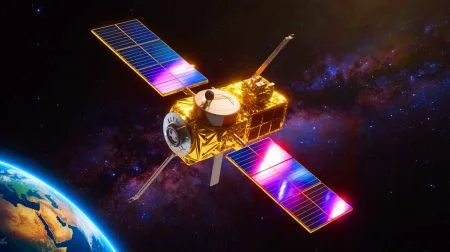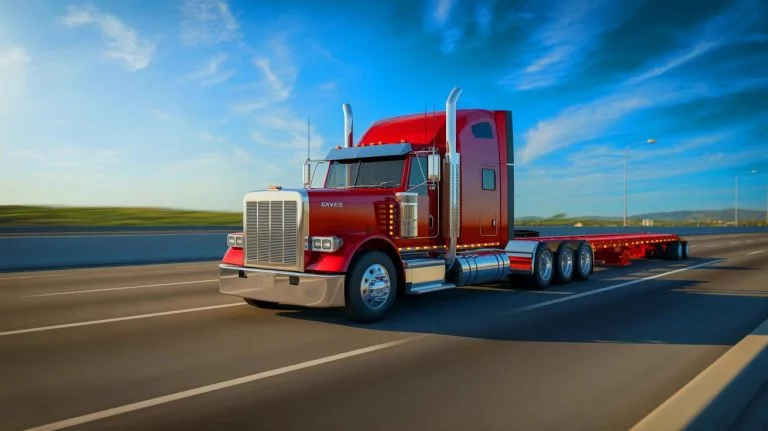| IN A NUTSHELL |
|
In the ongoing race to curb greenhouse gas emissions, the transportation sector remains a significant contributor. Recent data from the EPA indicates that transportation was responsible for a staggering 28% of greenhouse gases in the United States in 2022. The spotlight, therefore, is on long-haul trucking, which outpaces even passenger cars in emissions. Efforts to electrify this sector face numerous challenges, including high costs and logistical issues. However, a California-based startup named Revoy is pioneering an innovative solution that could transform the industry by seamlessly integrating electric power into existing diesel trucks.
Electrifying Challenges in Long-Haul Trucking
The concept of electrifying long-haul trucking is appealing due to its potential to significantly reduce emissions. However, the transition from diesel to electric comes with formidable challenges. Electric trucks are notably more expensive than their diesel counterparts, and their range and charging times lag behind. The high upfront costs and logistical hurdles deter many trucking businesses, which often operate on tight margins. Moreover, the infrastructure for fast charging electric trucks in the U.S. is sparse, further complicating the adoption of electric vehicles (EVs) in the freight industry.
Despite these challenges, electrification remains a critical goal. Freight companies are interested in the lower running costs and improved drivability of electric vehicles, but the initial investment and infrastructural demands are significant barriers. While truck fast-chargers are available, they are too few and far between, making it difficult for companies to rely on electric power for long-haul routes. Nevertheless, the potential environmental benefits and operational savings keep the interest in EVs alive among freight operators, albeit at a cautious pace.
The Revolutionary Revoy Dolly
Revoy’s groundbreaking solution to the electrification challenge is the development of an electric dolly. This device can be inserted between the tractor and trailer of a conventional diesel semi-truck. The dolly is equipped with a powerful 575-kWh battery and an electrically driven axle, providing an impressive range of approximately 250 miles. What’s remarkable is that the dolly requires no modifications to existing trucks or trailers, connecting seamlessly through a smart kingpin and standard fifth-wheel hitch.
Besides its propulsion capabilities, the dolly enhances the driving experience with features such as assisted steering correction, regenerative braking, and blind-spot detection. These features, accessible via a smartphone app, not only improve drivability but also provide safety enhancements. Revoy’s innovative approach allows trucking companies to adopt electric power without significant upfront costs, as the dolly is leased on a per-mile basis. This model enables companies to break even by saving on fuel costs, making electric power an attractive option without the financial burden of purchasing new vehicles.
Infrastructure and Operational Efficiency
Revoy’s system is designed to maximize efficiency and minimize downtime for truckers. The company plans to establish a network of swap stations at strategic locations along major routes. These stations allow for the swift exchange of depleted dollies with fully charged ones in about four minutes, a process faster than refueling a diesel truck and significantly quicker than charging an electric vehicle. This infrastructure not only supports the dolly’s use but also offers amenities for drivers, enhancing their overall experience.
The logistics of this system are crucial for its success. By enabling quick swaps, the Revoy model mitigates one of the major hurdles of electric trucking: long charging times. Additionally, if a truck needs to travel beyond the network of swap stations, it can revert to diesel power, leaving the dolly at the last station. This flexibility makes the system adaptable to current infrastructure constraints, offering a practical bridge to full electrification of long-haul freight.
Future Prospects and Global Potential
While Revoy’s initial focus is on the U.S. market, the concept has the potential to revolutionize trucking globally. The system’s ability to retrofit existing diesel trucks with electric power can be applied to other regions with similar long-haul logistics, such as Australia and Canada. In Australia, for example, the expansive 2,500-mile transcontinental route could benefit from swap stations powered by solar energy, showcasing the dolly’s adaptability and sustainability.
However, the system faces certain limitations. The added weight of the dolly reduces the payload capacity under federal weight limits, although Revoy argues that most freight is volume-limited rather than weight-limited. This means that over 60% of trucks could utilize the dolly system without payload issues. As Revoy continues to expand its trials and infrastructure, the potential for widespread adoption grows, promising a cleaner, more efficient future for long-haul trucking.
Revoy’s innovative approach to electrifying long-haul trucking offers a glimpse into a future where efficiency and sustainability go hand in hand. By addressing the challenges of cost, range, and infrastructure, the company is paving the way for significant environmental benefits. As more fleets adopt this technology, we are left to ponder: how will other industries innovate to meet the demands of a sustainable future?
Did you like it? 4.5/5 (22)






Isn’t this just another gimmick? I mean, how practical is it really? 🤔
Wow! This is innovative. Kudos to Revoy for thinking outside the box!
How does the dolly handle in snowy or icy conditions?
Seems like a band-aid solution to me. Why not just go fully electric?
Thank you for the article! Very informative. 😊
250 miles range isn’t really that much, is it?